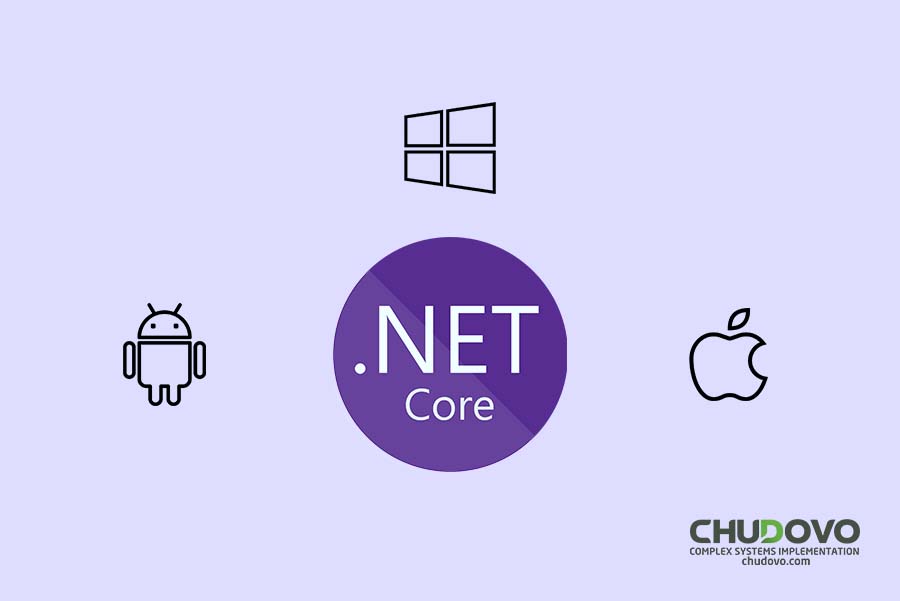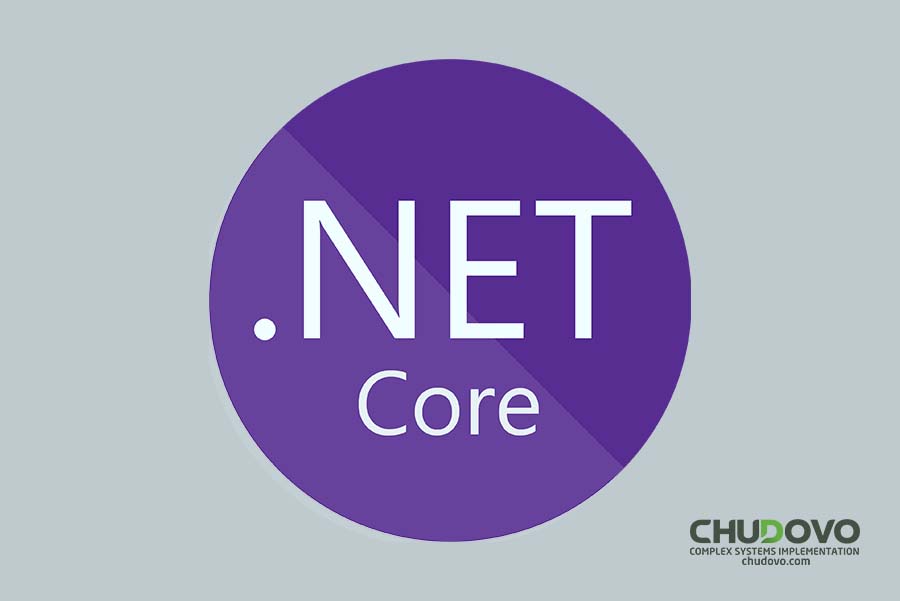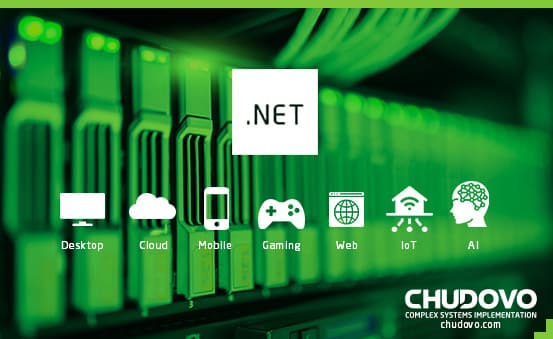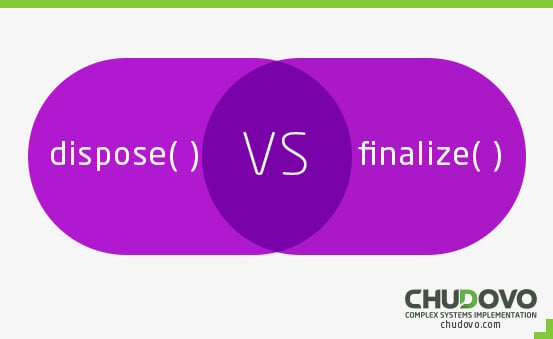Building for the Future: Exploring Cross-Platform Development with .NET Core
In today’s software engineering landscape, building applications that perform flawlessly across diverse platforms is essential. .NET Core, a versatile framework, empowers developers to achieve this seamlessly. In this article, we’ll explore the world of cross-platform development with .NET Core, uncovering its capabilities and advantages for creating efficient and future-ready applications.
Table of content
- Introduction
- What Is Cross-Platform Development?
- Pros and Cons of Cross-Platform Development
- What is .NET Core?
- Cross-Platform Development With .NET Core
- What Are the Key Features of .NET Core?
- Differences Between the .NET Framework and .NET Core
- Why Do Companies Prefer .NET Core Cross-Platform Development Compared to Other Technologies?
- What Challenges and Considerations Must Be Addressed When Developing Cross-Platform Applications with .NET Core?
- Conclusion
- FAQ
Introduction
In the ever-evolving realm of software engineering, the ability to build efficient, robust and versatile applications is paramount.
With the rise of multiple operating systems and devices, it is essential to build applications that can seamlessly run on various platforms without compromising performance or user experience. One such powerful tool that enables developers to achieve this is .NET Core. If there’s one term that perfectly encapsulates this approach, it’s cross-platform development.
But how exactly does .NET Core fit into this picture? Let’s explore this question in depth through this article. We will delve into the world of cross-platform development with .NET Core, exploring its capabilities, benefits, and how it empowers developers to build robust and future-proof applications. Let’s start!

What Is Cross-Platform Development?
Cross-platform is a program that can run applications with the same specifications on different platforms, such as iOS, Android, Windows, and macOS. Development costs can be reduced since one development language can support multiple applications. A similar program is Multi-platform. Multi-platform is compatible with multiple devices but requires development for each individual OS, which is time-consuming and costly.
Basically, software architecture is based on the environment in which it will operate. Therefore, software created with one environment in mind cannot be used in other environments.
However, as operating environments become more diverse these days, such a situation narrows the range of users. Therefore, there is a need for cross-platform software that can support multiple operating environments with a single program. In fact, many smartphone apps are compatible with both iOS and Android, and it can be said that cross-platform app development has become commonplace.
Even though it’s cross-platform, there are multiple mechanisms to achieve it. Let’s look at three typical types here.
- Native type that operates the system on the OS
- Hybrid type that uses native functions on WebView
- Original renderer type that renders on its own
Pros and Cons of Cross-Platform Development
Achieving cross-platform offers several advantages. Specific details are as follows.

Pros of Cross-Platform Development
Reduces development costs
Using cross-platform coding, tasks previously required for each OS can be unified. Intermediate processes such as database access and communication processing are also shortened, making it possible to reduce application development time and costs significantly. As a result, this will lead to fewer and more skilled engineers.
Easy to respond to specification changes and malfunctions
In cross-platform, the language is unified for each framework, so debugging measures such as responding to specification changes and finding and eliminating bugs can be easily performed. This is a great advantage in terms of maintenance, operation and quality control.
Expected to expand user base
As users’ needs for applications increase, in order to meet these needs, it is necessary to learn and develop many programming languages.
On the other hand, cross-platform is more efficient because it can be handled in a single language. By covering a wide range of necessary functions, you can expect to expand your user base.
And when we talk about specific cross-platform development with .NET core, the advantages are:
It can be distributed without a runtime or library
Applications that do not work without a runtime may require the runtime to be installed in addition to the application, which can be a hassle. .NET Core allows you to include runtimes and libraries used by your software when distributing them. This makes it possible to operate even in an environment where runtimes and libraries are not pre-installed, reducing complexity at the time of introduction.
Get support from Microsoft
Microsoft develops .NET Core, so it is supported by Microsoft. Security and quality updates are made every month to ensure high quality. It’s very reassuring to be able to receive support if something goes wrong during development or when you’re looking for a better way to use the software.
Cons of Cross-Platform Development
As far as we know, the benefits of cross-platform looks really attractive, but on the other hand, there are also drawbacks, so you need to be careful. When considering the introduction, be sure to keep the following points in mind.
Dealing with problems that occur depending on the OS may not be possible
Even though cross-platform allows development in a single language, the OS languages are originally different. Therefore, when a problem occurs, if it is an error related to the OS, it must be handled in the target environment (that OS). If such a situation occurs, knowledge of each native application (programming language) is, of course, required. If you don’t have a knowledgeable person in charge, you will probably have no choice but to rely on an outsourced company.
May not keep up with OS updates
If each OS is updated, cross-platform programs may be delayed in response.
For native apps, when the OS specifications change, a beta version is released to developers, but for cross-platform apps, there is no prior announcement. Therefore, it is impossible to check the operating environment by updating the OS on time. Also, due to compatibility issues, some updates may not work properly.
There are issues with OS version upgrades, etc
iOS, provided by Apple, and Android OS, provided by Google, are updated regularly. In the case of a native development language, the smartphone app will be compatible with the OS, but when using cross-platform, there are cases where you have to wait for the cross-platform to be compatible with the latest OS version. As a result, one of the disadvantages of cross-platform is that there remain challenges in developing the latest functions tailored to the OS and device equipment.
Now, let’s jump from cross-platform development to .NET core application development. Read on!
What is .NET Core?
.NET Core is an open-source, cross-platform development framework. As a successor to the .NET Framework developed by Microsoft, it can run on multiple operating systems such as Windows, macOS, and Linux.
.NET Core provides an execution environment for applications developed using languages such as C#, Visual Basic, and F#, including high-performance and scalable web applications, cloud-native applications, IoT devices, and mobile applications. It allows you to build different types of applications.
Basic concepts of .NET Core
.NET Core has the following basic concepts:
- CLI: A command line tool for creating, building and running .NET Core applications using the .NET Core SDK.
- Runtime: A runtime environment for running .NET Core applications.
- ASP.NET Core: A web application framework that runs on .NET Core.
- Entity Framework Core: An object-relational mapper (ORM) for .NET Core.
- NuGet: .NET package manager to manage packages for .NET Core.

Cross-Platform Development With .NET Core
Programs developed with .NET Core can run on Windows, Linux, and macOS.
Many of the modern software deployment strategies that have been accumulated with the .NET Framework can now be reused cross-platform.
If it were only cross-platform, people would quibble that Java would be fine, but .NET also has a wide range of development language options, such as C# and VB.NET. This makes it possible to accept more engineers than Java, which is cross-platform and single language.
The key to achieving cross-platform development is the “separation of implementation and specification” known as .NET Standard.
.NET Standard defines the interfaces of the .NET Framework, such as namespaces, classes, properties, and methods, as API specifications.
And the implementation of .NET Standard is .NET Framework, .NET Core, Xamarin, and so on. We call these .NET implementations.
What Are the Key Features of .NET Core?
.NET Core has various features compared to its predecessor, .NET Framework. We are now in an era where flexibility, such as a cross-platform and open source development approach, lightweight, and flexibility, is required. .NET Core is characterized by the fact that it is equipped with various functions that are required in modern times and has been developing. Here are four key features of .NET Core.
1: Cross-platform
Applications built with .NET Core are cross-platform and work in multiple environments. Traditional .NET Framework and Xamarin were limited to operating systems, but .NET Core supports multiple operating systems, including Windows, Linux, and macOS. Not having to create applications which have multi-device compatibility may greatly reduce the burden on developers.
2: Open source
.NET Core is open source and freely available to anyone. Since it is open source, not only is the source code publicly available, but anyone can use it free of charge for both commercial and non-commercial purposes and modify and distribute the source code. Being able to read the source code will be a great learning experience when it comes to deeply understanding how .NET Core works.
3: Lightweight
.NET Core is lighter than .NET Framework and has less storage space. When distributing an application, you only need to include the minimum necessary libraries, making it lightweight. Because it is lightweight and easy to operate even if there are few servers or memory resources. For example, .NET Core is said to be suitable for use as a container.
4: Flexible
.NET Core allows you to build flexible environments. It has the ability to minimize usage when it is not being used much and scale it up when high performance is required due to heavy access and processing. In recent years, cloud-based systems have become popular, with pay-as-you-go billing based on the amount of data used, such as communication traffic and server capacity. A flexible environment minimizes infrastructure costs.
Differences Between the .NET Framework and .NET Core
.NET Framework is a language created by Microsoft in the year 2000, which seeks to be better and more efficient than its competitors, such as Java and C. It has two most used versions that always leave several doubts regarding its different characteristics. In the end, what are the differences between the C# .NET Framework and .NET Core?
When the .NET Framework was created, it was defined as a language that would be (and still is) closed source, which means that only Microsoft knows how it is made. Over time, it saw much growth concerning types of devices and software advancements, so the company decided to make another version of the language called .NET Core, which is open source and has support for several additional types of software, such as Docker. Both languages are quite similar regarding their compilation and can be programmed in C#, Visual Basic and F#.
A very notable difference between these two languages is that Core is open source, which means that it receives contributions from a community that works to make the language better and more efficient, while Framework is closed source, so only Microsoft knows how it is.
Another big difference between those two variants of the programming language is that .NET Core is cross-platform, which means it can run on Linux, Windows, and MacOS, making it great for porting apps to other operating systems for various reasons. While the .NET Framework is only compatible with Windows, and applications can only be developed for this system, which greatly limits the possibilities for developers who are looking to have applications for as many users as possible.
There are developers who need to test other versions of a language for the proper development of their application and in the case of languages in comparison, .NET Core comes out ahead in this aspect, as it allows the installation of different versions that do not conflict with each other, allowing more options when testing and development as such, while the .NET Framework cannot work with other versions, since only one is allowed per computer. This can cause even more problems when updates occur, as applications that depend on a specific version may stop working partially or completely.
In short, both languages are very similar but with well-marked differences that can serve different objectives for developers. .NET Framework is recommended for making applications specifically for Windows. At the same time, .NET Core is better in general terms since it is more flexible since it can be run on any system, it has more compatibility with external software, allows working with different versions and can be studied in depth, if necessary, with the source code.
Why Do Companies Prefer .NET Core Cross-Platform Development Compared to Other Technologies?
In today’s digital world, companies are constantly grappling with technology decisions. One topic that frequently arises is why companies prefer .NET Core to enable cross-platform development compared to other technologies. Understanding this preference requires a closer look at the unique benefits of .NET Core, its advantages over its counterparts, and the specific scenarios where it excels.
.NET Core, contrary to what you might think, is not just a rehash of its predecessor, the .NET Framework. It’s a revolutionary new platform that allows developers to write code once and have it run anywhere. But what exactly makes it stand apart?
The first thing to note is its sheer adaptability. Unlike its predecessors, which are limited to working on Windows, .NET Core can function across multiple platforms such as Windows, Linux, and MacOS. This enables developers to write code just once and have it be effective and efficient on multiple platforms. Now, isn’t that a huge plus?
Apart from being cross-platform, .NET Core is also open-source. This means it invites contributions from developers all over the world, ensuring constant refinement and improvement.
Secondly, .NET Core also boasts better performance than most of its counterparts. It’s highly optimized, making it faster and more efficient, which in turn can lead to saving a lot of resources.
But, isn’t developing apps with .NET Core difficult?
Quite the contrary. Thanks to tools like Visual Studio, .NET Core makes for a streamlined, hassle-free development process. These high-quality development environments help reduce the time, cost, and complexity of creating .NET Core applications.
In short, companies prefer .NET Core enabled cross-platform development not because it’s trendy, but simply because of its impressive performance, flexibility, and open-source community contributions. These factors make it a scalable, cost-effective, and highly efficient choice for cross-platform development.

What Challenges and Considerations Must Be Addressed When Developing Cross-Platform Applications with .NET Core?
Developing cross-platform applications with .NET core, a high-performance, open-source framework, has become popular among developers for its ability to deliver high-quality applications across diverse platforms. However, as with any technology, the .NET core presents its unique challenges and considerations that must be recognized and addressed.
Developers’ primary challenges and considerations when developing cross-platform applications include platform compatibility checks, ensuring consistent application behavior, engaging with distinct UIs, managing multiple APIs, understanding variations in operating system capabilities, and seamlessly integrating platform-specific code.
Platform compatibility checks
Multi-device compatibility forms one of the biggest issues while using .NET core. It is necessary to identify and utilize functionally consistent APIs across Operating Systems to avoid compatibility issues. These checks help deliver uniform application performance, regardless of the underlying platform.
Ensuring consistent application behavior
Dealing with variances in application behavior across Operating Systems is another crucial consideration. It’s important to use a consistent development approach, use standardized .NET interfaces, and ensure code portability to guarantee identical application behavior on all platforms.
Engaging with distinct UIs
Different platforms come with their unique User Interfaces(UIs), resulting in extra workload for developers. .NET core developers need to design each UI individually, ensuring that it ensures user expectations and maintains the application’s overall aesthetic across platforms.
Managing multiple APIs
As different platforms come with their set of APIs, integrating them while maintaining application functionality is a considerable task. Balancing application functionality while integrating multiple APIs needs careful planning, especially when developing cross-platform applications with .NET core.
Understanding variations in operating system capabilities
Different operating systems bring different capabilities and limitations to the table. Developers need to understand and accommodate these differences to deliver a consistent and top-notch user experience.
Integrating platform-specific code
Lastly, integrating platform-specific code into a cross-platform application can be a stumbling block. Segregating platform-specific code and using conditional compilation is recommended to handle this situation.
Overall, using .NET core for developing cross-platform applications indeed offers impressive benefits. However, overcoming its inherent challenges requires a good grasp of the technology, sound planning, and the willingness to experiment and learn. Do you have what it takes to tackle these challenges head-on?
Conclusion
In modern software engineering, cross-platform development anchored by tools like .NET Core is fast becoming the go-to approach. It grants developers the versatility to build for the future. With its myriad benefits, it’s clear that .NET Core stands tall as a vital tool in the software development landscape.
Is your team ready to harness .NET Core for your next development project?
FAQs
Why is cross-platform development important in business today?
Cross-platform development enables businesses to target multiple platforms and devices using a common codebase making it affordable for them.
Can you discuss the security features and practices inherent in .NET Core that contribute to building secure cross-platform applications?
.NET Core has built-in security practices like memory safety, crypto agility, and threat modeling.
What strategies can developers employ to optimize the user experience of cross-platform applications developed using .NET Core?
Optimizing UX involves following platform conventions, adaptive UI, offline support, and performance tuning.
How does Microsoft’s support for .NET Core and its continuous updates contribute to the longevity and relevance of cross-platform applications developed using this technology?
Microsoft’s support ensures longevity via continuous updates, security fixes, and alignment with latest advancements.
Which cross-platform frameworks complement .NET Core’s capabilities effectively?
React Native, Flutter, Xamarin, and Qt complement .NET Core for native UI capabilities.
In what ways does .NET Core address the challenges associated with platform-specific APIs and dependencies during development?
.NET Core abstracts platform differences by providing a unified API surface.
How does .NET Core facilitate code reusability across different platforms?
Code sharing is enabled via .NET Standard targeting and conditional compilation techniques.
What role does .NET Core play in enhancing the performance and user experience of cross-platform apps?
.NET Core boosts performance through optimized runtime, just-in-time compilation, and scalability features.
How does embracing cross-platform development contribute to the resilience of software applications?
Cross-platform apps are resilient as core business logic is decoupled from specific platforms.
What is the role of .NET Core in future-proofing apps?
.NET Core future-proofs apps through its focus on cloud, microservices, and continuous innovation.
Provide 2-3 real examples of applications built using .NET Core for cross-platform app deployment?
Stack Overflow, Honeywell devices, and JetBrains Rider IDE leverage .NET Core’s cross-platform strengths.





